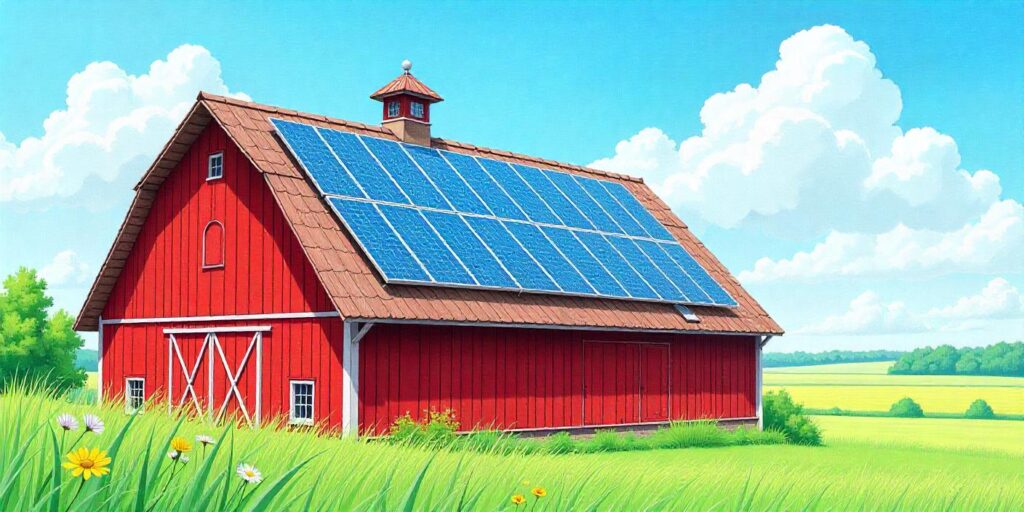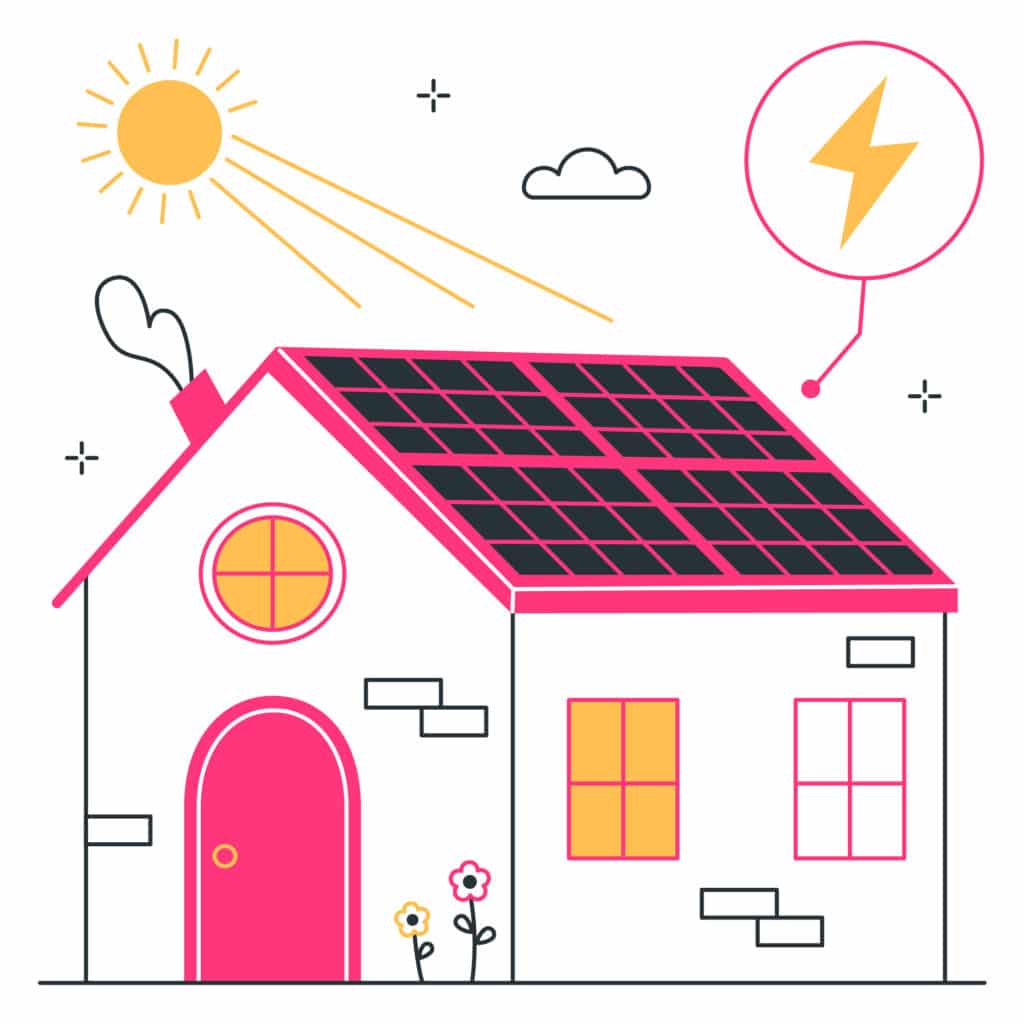📦 Fast Delivery – Order Now!
💸 Shop Safely – 100% Money-Back Guarantee
👨🔧 Lifetime Customer Support
📦 Fast Delivery – Order Now!
💸 Shop Safely – 100% Money-Back Guarantee
👨🔧 Lifetime Customer Support
Switching to a solarpower energy system is easier than ever, yet many still wonder if it’s the right choice. Electricity prices keep rising, but solar energy remains stable. More homeowners and businesses are investing in solar systems because they save money and reduce carbon footprints. But is it worth it for you?

A solar power energy system captures sunlight and converts it into electricity. Solar panels absorb the sun’s energy, and an inverter changes it into usable power. You can use it immediately or store it in a battery for later. If your system produces excess energy, you can even send it back to the grid, reducing your electricity bill further.

Electricity costs continue to increase, and fossil fuels harm the environment. Solar energy, however, is clean and renewable. Governments offer incentives, making installation more affordable. Plus, with improved technology, solar panels last longer and perform better than ever.

Yes! Solar panels pay for themselves over time. You lower your electricity bill, and in some areas, you can sell excess power back to the grid. Many homeowners recover their investment within a few years. Additionally, solar panels increase property value, making your home more attractive to buyers.
Installing solar panels is straightforward, but professionals should handle the job. They ensure the best placement for maximum efficiency. Maintenance is minimal. Panels only need occasional cleaning, and most systems include long-term warranties.
If you pair solar with a battery storage system, you gain even more independence from the grid.

✅ 3 kWh outdoor battery cabinet
✅ Weather-resistant design
✅ Seamless integration with Generac
Not every roof is ideal for solar panels, but most are. Your location, roof angle, and shading affect efficiency. Even if your roof isn’t perfect, ground-mounted systems offer another option. Solar companies conduct assessments to find the best solution for you.
And that’s where we come in. AceFlex has a wealth of experience and is always on hand to advise you. Contact us, and we will get back to you as soon as possible to discuss your project!

Switching to solar reduces reliance on fossil fuels. It cuts carbon emissions and lowers air pollution. Using solar means less strain on power plants, which decreases the overall environmental impact. Every home that switches to solar contributes to a cleaner planet.

Solar energy keeps improving. Panels are becoming more efficient, and battery technology is advancing. More businesses and homes are choosing solar because it’s cost-effective and sustainable. As energy demands grow, solar will play a bigger role in meeting those needs.

Solar power depends on sunlight, so it doesn’t generate electricity at night or on cloudy days. Additionally, the initial installation costs can be high, but long-term savings often make up for it.
Your bill may still be high if your system isn’t producing enough electricity to cover your usage, especially during peak hours. Plus, utility fees, net metering policies, and seasonal changes can affect your total costs.
High-energy appliances like electric furnaces, large air conditioners, and industrial equipment can drain solar batteries quickly. However, with the right inverter and storage, most household devices can run efficiently.
The cost depends on location, equipment, and installation, but a system producing 2000 kWh per month can range from $15,000 to $30,000. Incentives and tax credits can significantly reduce the price.
A system that generates 5000 kWh per month may cost between $35,000 and $60,000, depending on local rates and system components. Federal and state incentives can help lower the upfront investment.
An average home needs around 5 to 10 kW, but actual demand depends on energy use and efficiency. A professional energy audit can determine the best system size for your needs.
A typical refrigerator requires about 0.1 to 0.5 kW, depending on its size and efficiency. While a solar system can easily handle this load, adding battery storage ensures operation during the night.
A 5 kW system can power one or two small air conditioners, but the exact number depends on their efficiency and other household energy consumption. Energy-efficient models help maximize solar capacity.
A 7 kW system can cover most homes’ needs, especially with energy-efficient appliances. However, large homes or high-energy users may require additional capacity.
A 9000-watt generator can power essential appliances, including lights, a fridge, and some small AC units. However, running an entire home with high-energy devices may require load management.
An average household uses around 30 kWh per day, but energy-efficient homes can use less. Your actual consumption depends on climate, appliances, and lifestyle habits.
A 4 kW system can run one small AC unit, but adding more could strain the system. Using energy-efficient cooling solutions helps optimize power usage.
Most solar panels last 25 to 30 years, though their efficiency gradually decreases over time. Proper maintenance and high-quality components can extend their lifespan.
Unless paired with battery storage or a hybrid inverter, grid-tied solar panels shut down during an outage for safety reasons. A solar battery backup ensures power availability.
Yes, but you’ll need a properly sized system with battery storage to cover energy needs when the sun isn’t shining. A backup generator can provide extra security.
Net metering allows you to send excess solar energy to the grid in exchange for credits on your utility bill. These credits offset electricity costs when your panels aren’t producing enough power.
Yes, homes with solar panels typically sell faster and at a higher price. Buyers appreciate the potential for lower energy bills and environmental benefits.
Solar panels require minimal maintenance, usually just occasional cleaning and system checks. However, monitoring performance ensures they operate at peak efficiency.
DIY installation is possible, but professional installation ensures safety, efficiency, and compliance with local regulations. Hiring experts can also help with permits and incentives.
AceFlex is one of the leading online retailers of renewable energy products and offers a wide range of solar products. We work with well-known manufacturers and wholesalers and can offer you cost-effective products in the field of photovoltaics so that you too can contribute to the energy transition.
Looking for an experienced team for planning your photovoltaic system without the hassle of doing it yourself? We are your trusted partner, offering comprehensive nationwide solutions. We provide expert consultation and supply of both photovoltaic systems and storage units tailored to your specific needs.
© 2026 Aceflex All Rights Reserved. Design by Media Pantheon, Inc.